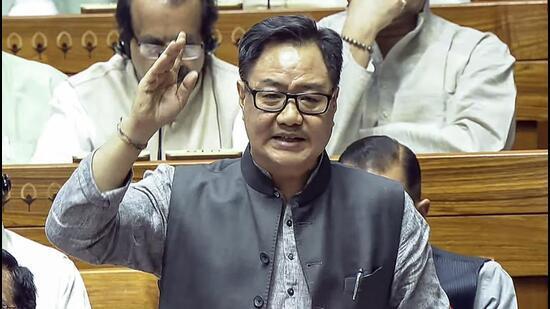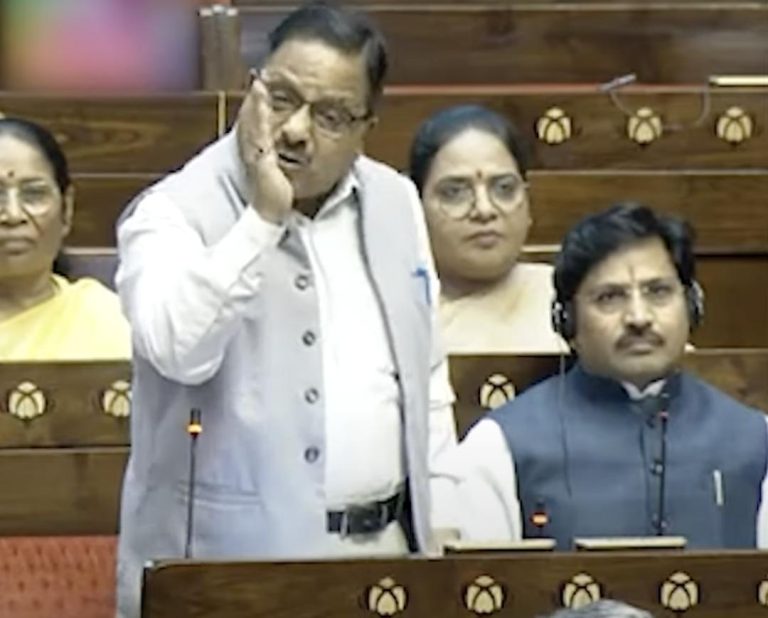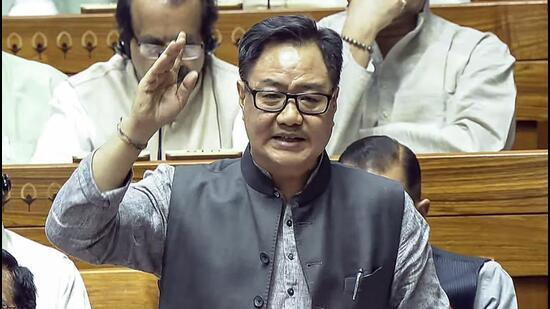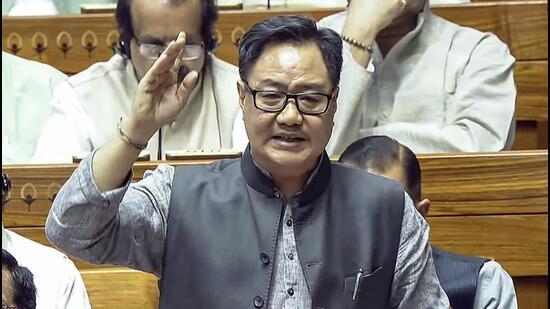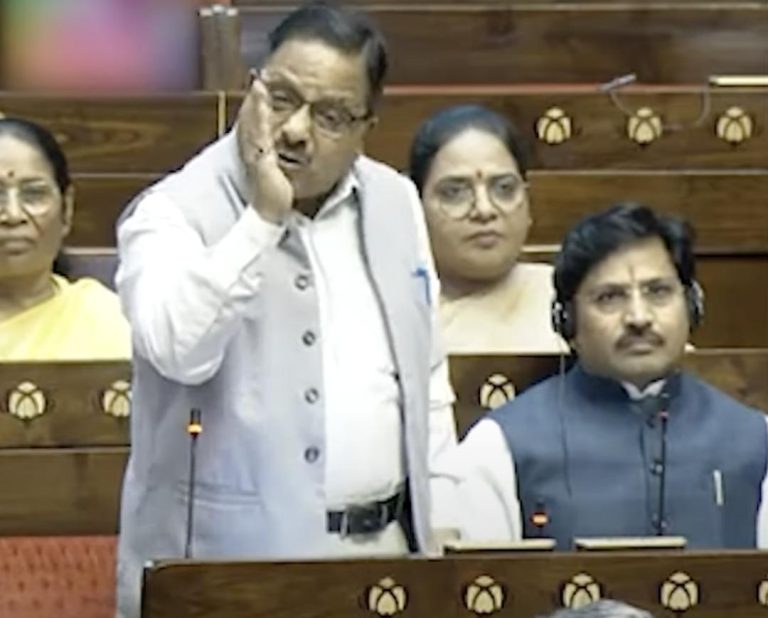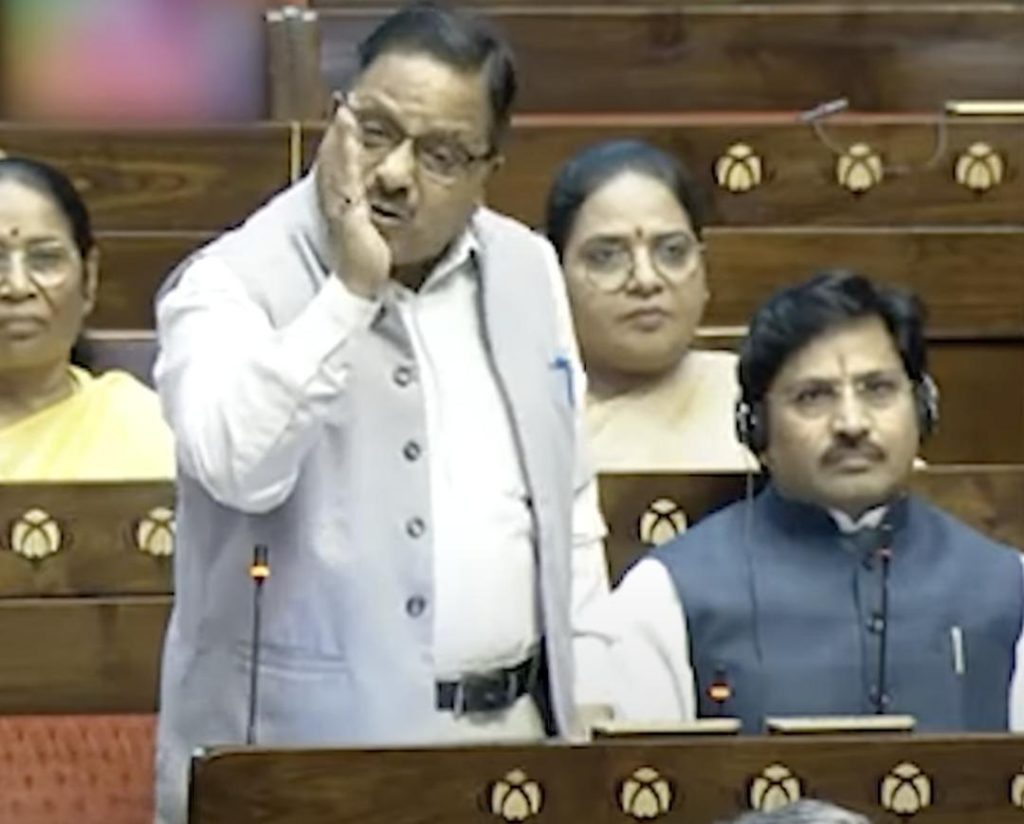
Should I Read Quran & Tell You What’s Written in It: BJP MP Radha Mohan Das on Waqf Bill
In a recent discussion on the Waqf Bill in the Indian parliament, BJP MP Radha Mohan Das made a sensational statement that has left many wondering about the intent behind his words. During the debate, Das asked if he should read the Quran and tell what is written in it, sparking a heated discussion among lawmakers and the public alike.
The statement was made in response to the controversy surrounding the Waqf Board’s alleged mismanagement of its properties. Das, a vocal critic of the Waqf Board, claimed that the Quran dictates that even a small payment of one rupee to anyone should be documented in writing. He then proceeded to question the Waqf Board’s handling of its properties, stating that they had many properties without any written records to back up their claims.
The statement has sparked a chorus of reactions from various quarters, with some interpreting it as an attempt to provoke Muslims and others seeing it as a genuine attempt to question the Waqf Board’s accountability. As we delve deeper into the controversy, it is essential to examine the context of Das’s statement and its implications on the ongoing debate around the Waqf Bill.
The Waqf Bill: A Brief Overview
For the uninitiated, the Waqf Bill is a proposed legislation aimed at regulating and reforming the Waqf Board, which is responsible for managing the properties and assets of mosques and other religious institutions in India. The Bill seeks to introduce transparency and accountability in the Board’s functioning, ensuring that the properties and assets are used for the benefit of the community and not misused by individuals.
The Bill has been met with resistance from various quarters, with some arguing that it is an attempt to encroach upon the religious freedom of Muslims and others claiming that it is a necessary step to curb corruption and mismanagement within the Waqf Board.
Radha Mohan Das’s Statement: An Analysis
Das’s statement, while provocative, appears to be an attempt to highlight the Waqf Board’s alleged lack of transparency and accountability. By citing the Quran, he is attempting to underscore the importance of documentation and transparency, which is a fundamental principle of Islamic law.
In Islam, the concept of documentation and written records is essential for ensuring the integrity and authenticity of transactions, including financial transactions. The Quran emphasizes the importance of keeping accurate records of transactions, stating, “O ye who believe! When ye contract a debt for a fixed term, write it down” (Quran, 2:282).
Das’s statement, therefore, seems to be an attempt to hold the Waqf Board accountable for its alleged mismanagement of properties and assets. By questioning the Board’s handling of its properties without written records, Das is highlighting the need for transparency and accountability in the management of these properties.
Implications of Das’s Statement
Das’s statement has sparked a heated debate about the role of religion in politics and the limits of freedom of speech. Some have criticized Das for using religion to score political points, while others have defended him, stating that he is simply highlighting the importance of transparency and accountability.
The statement has also sparked concerns about the potential backlash against Muslims, with some accusing Das of attempting to provoke Muslims and others. However, it is essential to recognize that Das’s statement is not an attack on Islam or Muslims, but rather an attempt to hold the Waqf Board accountable for its actions.
Conclusion
Radha Mohan Das’s statement, while provocative, is an attempt to highlight the importance of transparency and accountability in the management of Waqf properties and assets. By citing the Quran, Das is emphasizing the importance of documentation and written records, which is a fundamental principle of Islamic law.
As the debate around the Waqf Bill continues, it is essential to remain mindful of the importance of respecting religious beliefs and practices while also ensuring transparency and accountability in the management of public assets. It is also crucial to recognize that Das’s statement is not an attack on Islam or Muslims, but rather an attempt to hold the Waqf Board accountable for its actions.
Source:
